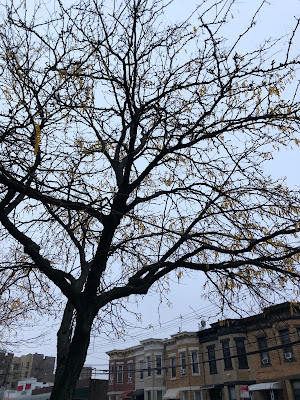When discussing bicycle- or "micro-mobility"-related issues, some people can't keep a metaphor or a story straight, let alone construct a cogent argument.
On Monday, I pointed out the malapropisms and simple lack of sense of a Manhattan community board member's objection to a bill that would require, among other things, licensing eBikes--even though I agreed, in principle, that it's not a good bill. Likewise, while I and many other New Yorkers can point to problems with Citibike's service and equipment, the City Comptroller's review of it seems to be guided, as Streetsblog suggested, by Yogi Berra's observation about a restaurant: "Nobody goes there anymore because it's too crowded."
On one hand, the report from Brad Lander--who has been mentioned as a possible successor to Eric Adams as this city's mayor--says that Lyft, the ride-share service that now operates the bike-share program, is no longer providing "reliable and equitable service." On the other, it acknowledges that "Citibike enables millions of trips each month" and that in 2022, there were 30 million trips: "five times as many as when the city first launched in 2013." Moreover, the report went on to say that preserving (Italics mine) Citibike as a "high-quality transportation service is essential."
 |
| Photo by Lindsey Nicholson |
So why did I italicize "preserving?" Well, it's notable that esteemed Comptroller used that word, and not "restoring" or some synonym for it. While it's far from perfect, I would say--and the phrase at the end of my previous paragraph would indicate--that Citibike is at least pretty good at what it does. Of course, my experience with it is very limited, but on the occasions when I used it, I could find a bike that worked reasonably well (not like my own, but that's a pretty high bar, if I say so myself) and a port in which I could leave and lock it without too much trouble. Now, I only used Citibikes between my bike-rich neighborhood of Astoria and central locations in Manhattan and Brooklyn. So, perhaps, I never had to experience what elicits the program's sharpest criticisms, to which the report alludes: that Citibike doesn't serve low-income neighborhoods and communities of color--or, for that matter, the borough of Staten Island.
Aside from the ways the report contradicts itself, Gersh Kuntzman of Streetsblog points out that it has another problem: the report is based on only two months--June and July of 2023, when Lyft admitted that it was experiencing problems, especially in certain areas (mainly in the Bronx) and with theft--out of nearly five years of the company's operating the service.
























.jpg)

.jpg)


.jfif)
.jfif)



